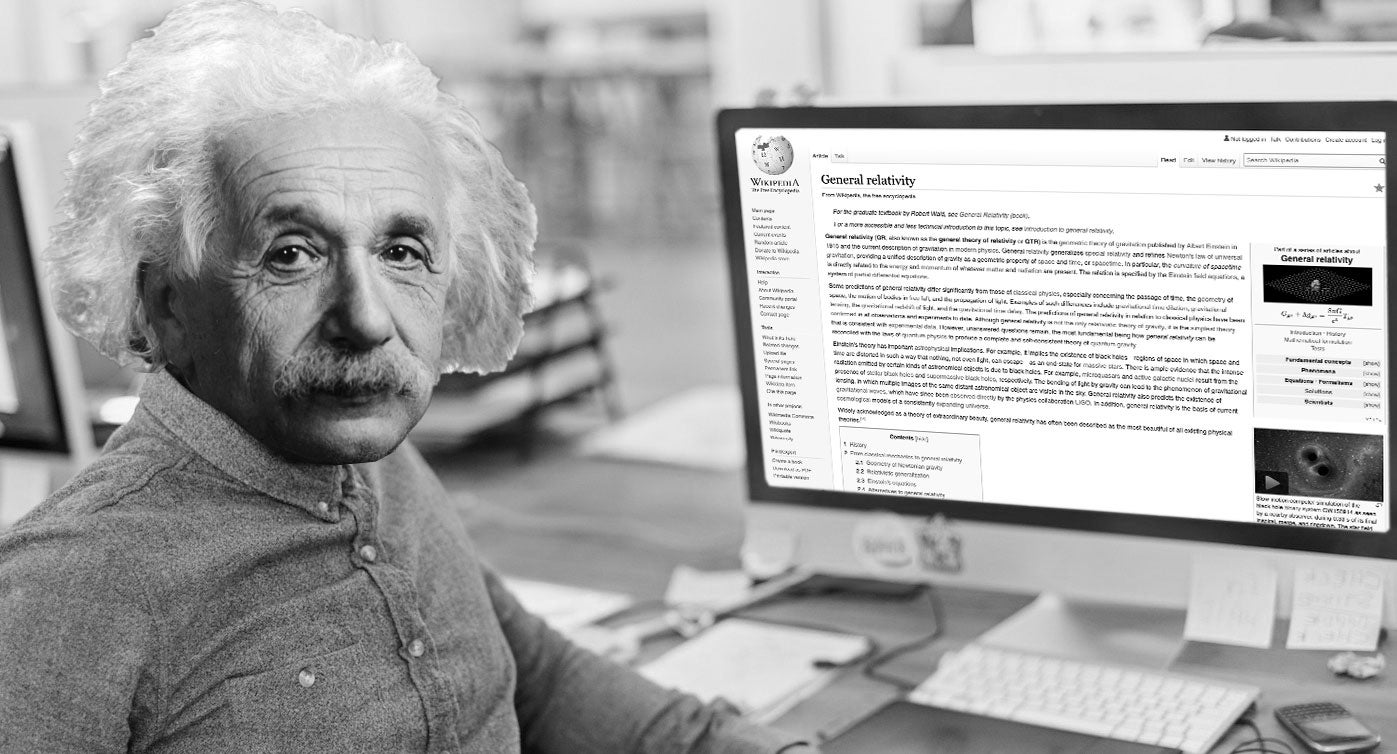
Wikipedia: A Professional Resource?
When non-scientists need to understand science, they turn to Wikipedia. When scientists need to understand science they turn to Wikipedia. Wait, really?
Yes, really. That’s one of the takeaways from a new study by Doug Hanley, an Assistant Professor in the Pitt Department of Economics. In the study, “Science is Shaped by Wikipedia,” Hanley and co-author Neil C. Thompson, of MIT, show that language and ideas from Wikipedia science articles influence scientific journals, the medium most academics rely on to alert their peers of new scientific findings.
Wikipedia as a Public Good
Since its debut in 2001, Wikipedia has become one of the busiest websites in the world. The free online encyclopedia has over five million articles, with somewhere between 10 and 20% of them on scientific topics.
Wikipedia also fits the economic definition of a public good: it’s free which makes it a non-excludable, (anyone can access it); and it’s online which makes it non-rival, (one person’s use doesn’t harm another’s use). Because they’re non-excludable, public goods are often difficult to monetize. Therefore, any sort of positive externality or spillover that a public good generates is likely to be ignored, leading to too little of the good.
Hanley and Thompson argue that five million Wikipedia articles is too little.
Seeing How Wikipedia Shapes Science
To see how Wikipedia shapes science, the authors take two approaches: a Big Data approach and an Experimental approach.
In the Big Data approach, the authors digitize the words used in 5.1 million Wikipedia articles – 17.4 billion words – then do the same for 326 thousand scientific journal articles. Using the timing of Wikipedia article edits, they measure how changes in the specific words used in Wikipedia articles coincide with changes in the specific words used in scientific journals. They found strong correlations between the two, suggesting that the language in one mirrors the other.
While the Big Data approach allows the authors to look at a massive set of articles, it’s difficult to tell if Wikipedia articles are driving changes in scientific journals or if scientific journals are driving changes in the Wikipedia articles. For example, imagine a breakthrough in Chemistry concerning plastic. This would lead to more Wikipedia articles about plastic – as the breakthrough leads to more general interest – as well as more scientific articles about plastic – as more scientific research is done following the initial breakthrough. This makes it hard to conclude that Wikipedia is shaping science, instead of just mirroring it.
To answer the shaping question, Hanley and Thompson use an experiment. They hire chemistry graduate students to create 43 new Wikipedia articles about advanced chemistry topics. Then they randomly selected half of the articles and post them to Wikipedia, while the other half go un-posted. After two years, they look at the words used in recent chemistry journals.
What they find is that the chemistry articles that were posted to Wikipedia had a significant effect on the words and ideas written in chemistry journals during the two year study. By comparison, the chemistry articles that were not posted to Wikipedia had no effect on subsequent chemistry journals. Because which articles were posted and which were not was random, the difference in significance can be taken as causal; Wikipedia articles did affect how chemists wrote scientific journal articles. Therefore, scientists are influenced by what’s on Wikipedia.
Creating Knowledge and Innovation
If Wikipedia shapes science then it does have a positive spillover: Wikipedia articles make it easier for scientists to produce research, helping us all.
But if there is a positive spillover – and therefore too few Wikipedia articles – what can policymakers do? Hanley and Thompson suggest requiring academics to contribute content to Wikipedia.
Much of the research done at US universities (including Pitt) is funded through government grants. Federal agencies like the National Institutes of Health fund faculty research, while also putting requirements on how the funds are used. If these agencies required researchers to contribute to Wikipedia, it would be an inexpensive and effective way to help scientific knowledge progress.
How knowledge progresses is the main focus of Professor Hanley’s work. In related research, with Mingqin Wu, Hanley analyzes how the rollout of high-speed rail has promoted knowledge sharing between cities in China. Hanley also has several projects studying: the impact patent policies have on innovation; the relationship between technology and climate change; and industrial policy.
“Technological advances have driven economic growth in the modern era,” says Hanley. “And those technological advances can only be understood by studying how knowledge is created and shared. That’s what motivates my work.”
